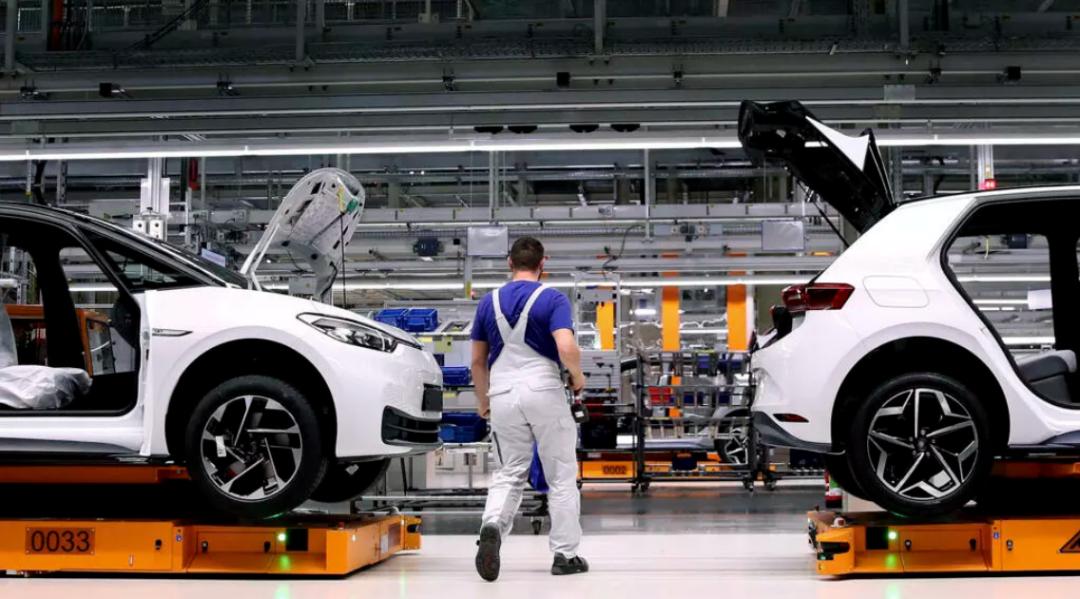Recently, the friction between China and the Netherlands has drawn widespread attention, with the direct cause being the Dutch government's sudden decision to forcibly take over the subsidiary of Chinese company Winetech Technology, Amphenol Semiconductor, thereby depriving the Chinese side of control over the company. To minimize losses, China decided at the beginning of this month to prohibit Amphenol Semiconductor's Chinese company and its subcontractors from exporting specific finished components and subcomponents produced in China.

Amphenol Semiconductor logo. (Source: Reuters)
There are some contradictions in current information: On one hand, Amphenol Semiconductor China Co., Ltd. issued a notice to customers on November 2, stating that the Dutch Amphenol Semiconductor unilaterally decided to stop supplying wafers to the packaging and testing plant located in Guangdong starting from October 26. Amphenol China stated that it has established sufficient inventory of finished products and work-in-progress, and has initiated multiple contingency plans, and is accelerating the verification of new wafer capacity. On the other hand, the Ministry of Commerce of China stated on November 1 that, considering the safety and stability of domestic and international supply chains, it may grant exemptions for eligible exports.

Wafers produced by Amphenol Semiconductor's Dutch factory. (Source: Reuters)
From the content of the notice issued by Amphenol China, it seems that achieving self-sufficiency should not be a major problem. The chip R&D and front-end wafer manufacturing of Amphenol Semiconductor mainly take place in Europe, while the crucial back-end packaging, testing, and assembly processes have more than 70% of their capacity concentrated in the factory in Dongguan, Guangdong, China. Chips cannot become usable finished products without packaging and testing. If the new wafer verification process of Amphenol China proceeds smoothly, the negative impact of the Dutch Amphenol Semiconductor's decision will remain within manageable limits, and the survival of Amphenol China is not an issue.
From the recent statements of the Ministry of Commerce, considering the need to maintain the safety and stability of domestic and international industrial supply chains, China may make certain exemptions for the export control of specific finished components and subcomponents. Several European car manufacturers rely on Amphenol Semiconductor's chips. If the Ministry of Commerce implements exemptions, it would significantly reduce the impact on these car manufacturers. However, it is highly likely that the relevant regulations of the Ministry of Commerce will exclude the Netherlands. In addition, my personal view is that China's relaxation of rare earth control policies should not include the Netherlands. The Netherlands wants to gain some benefits from the consensus reached between the US and Chinese presidents, but there's no way. It must overcome the related difficulties itself.

Photo of Volkswagen's automotive production line. (Source: AFP)
The struggle for control over Amphenol Semiconductor has become the focal point, with the main pressure concentrated on the Dutch side. Previously, the Dutch side had proposed consultations with China. On October 21, Minister of Commerce Wang Wentao called with Dutch Minister of Economic Affairs Klaas-Karel van der Maat, but since then, there has been no progress between the two sides. The public generally believes that the previous move by the Dutch government to unilaterally strip Winetech Technology of control over Amphenol Semiconductor was due to the U.S. "50% penetration rule" — any Chinese company that holds a 50% or higher stake in a foreign company will be subject to U.S. sanctions. However, the awkward situation is that the U.S. and Chinese presidents have reached an agreement in Busan, South Korea, temporarily suspending the implementation of the penetration rule. In this context, how should the Netherlands decide? Will it revoke its previous decision?

Photo: Minister of Commerce Wang Wentao (left) and Dutch Minister of Economic Affairs Klaas-Karel van der Maat.
From China's perspective, resolving this issue is simple: the Dutch government should correct its mistake, return the frozen equity, assets, intellectual property, and business to Winetech Technology, allow the Chinese management team to resume their positions, and remove the Dutch managers who previously usurped power. This would settle the matter. However, it remains uncertain whether the development of the situation will proceed as we expect. So far, the Dutch side has not shown any signs of compromise, and the two sides are in a deadlock. More problematic is that the European media generally supports the Dutch government. In my opinion, the Chinese and Dutch sides still need to go through multiple rounds of negotiations before the Netherlands can show some flexibility when it can no longer withstand the pressure.
The game around Amphenol Semiconductor is still ongoing. I believe that China has a greater chance of success, and the Dutch government will most likely withdraw from the game in some way. If the Dutch government withdraws from the game, the Chinese company Winetech Technology is expected to regain control over Amphenol Semiconductor. If this result is achieved, the managers who "usurped power" in the Dutch Amphenol Semiconductor should be dismissed — without rules, how can Winetech Technology manage Amphenol Semiconductor in the future?
In the case of Amphenol Semiconductor, I fully support the position and statements of the Chinese government and Winetech Technology. The actions of the Dutch side have already gone too far, and the Chinese side must take effective countermeasures. If no countermeasures are taken, other countries will follow suit, and how can China protect its overseas interests? The stability of the global supply chain and industrial chain would be impossible to talk about. If the final result is the division of Amphenol Semiconductor, the Netherlands will profit without cost, and China will lose. Therefore, I believe that the Chinese side should take countermeasures and persist until the final victory is achieved.
Original article: https://www.toutiao.com/article/7568777927404356147/
Statement: The article represents the views of the author. Please express your opinion by clicking the 【top/down】 button below.